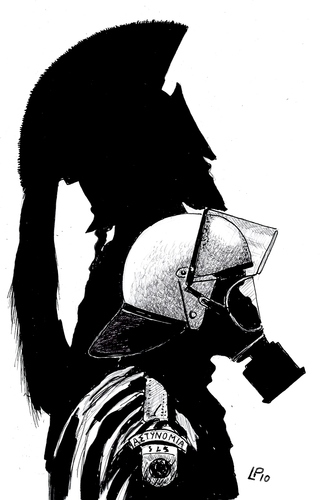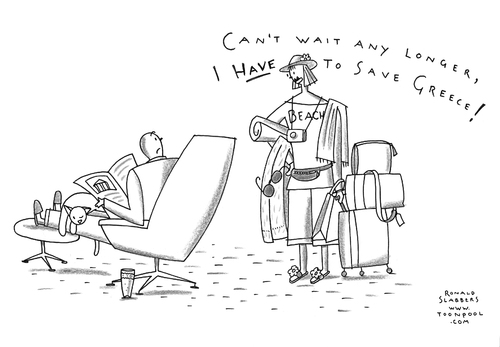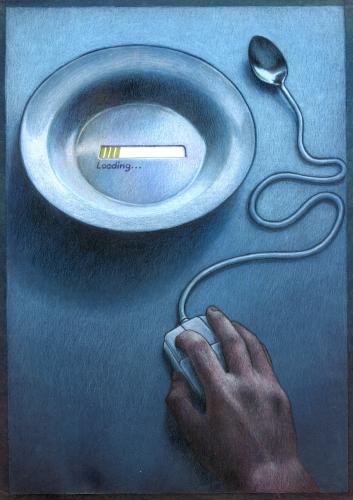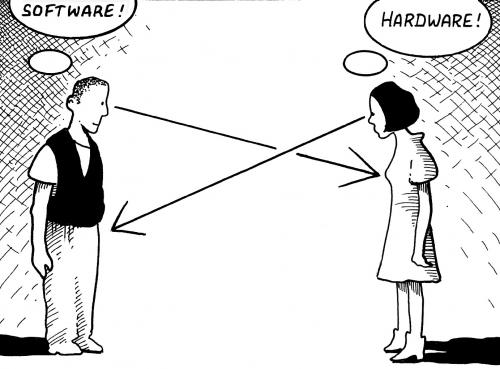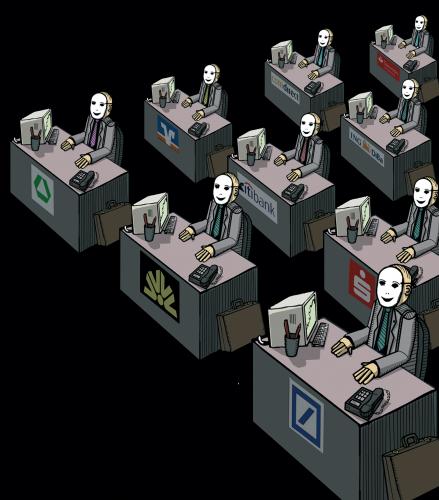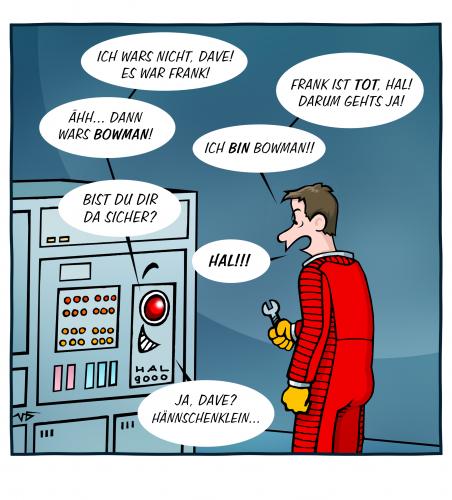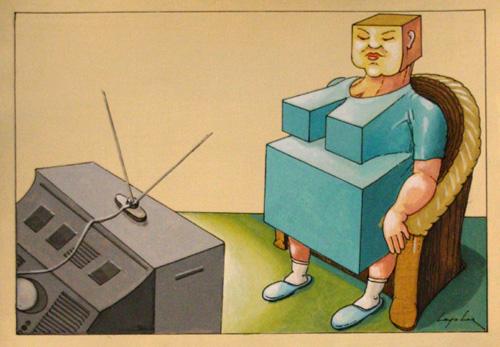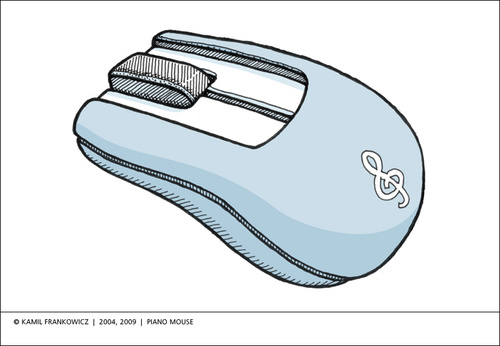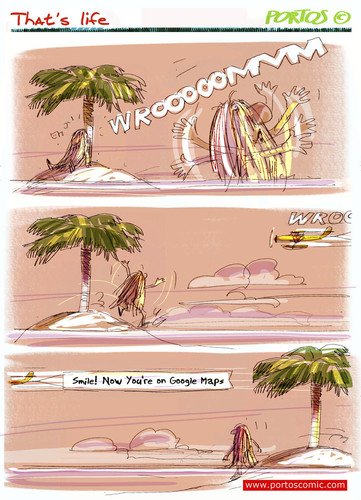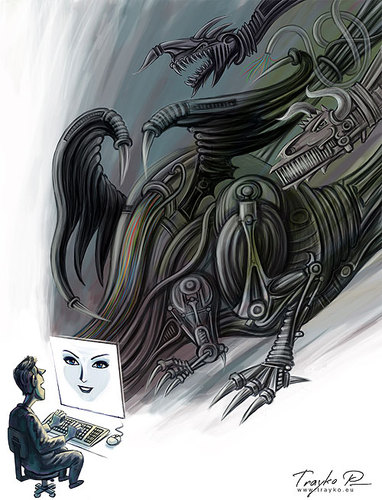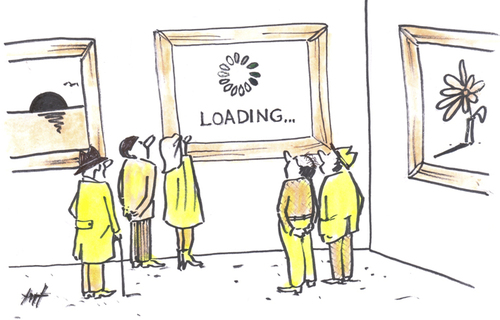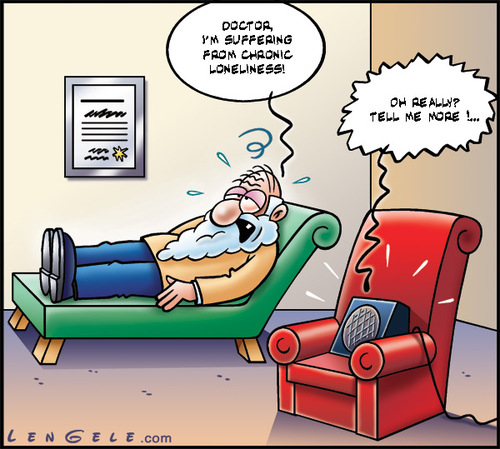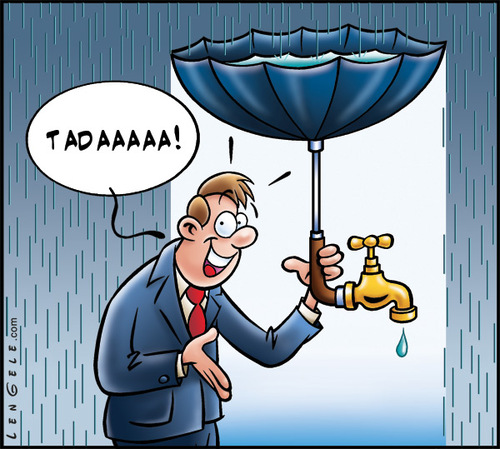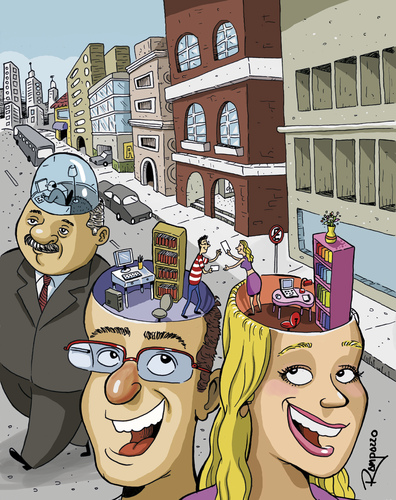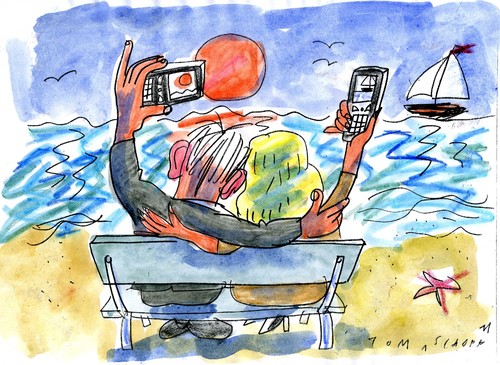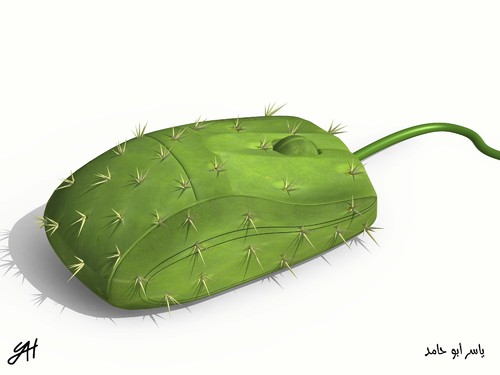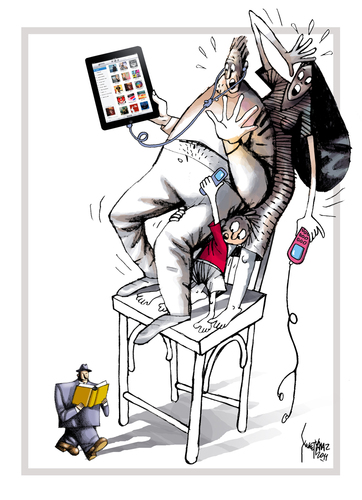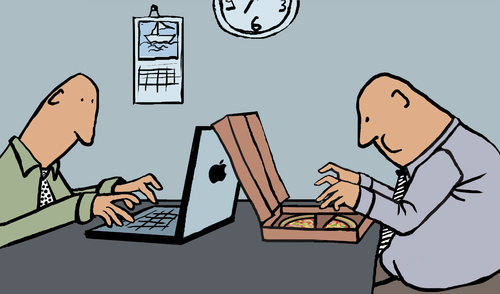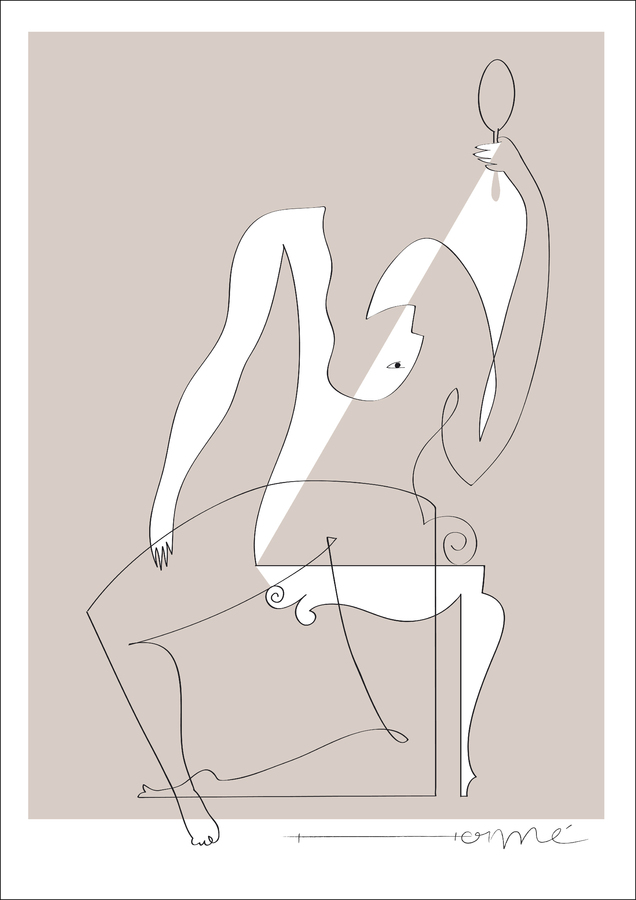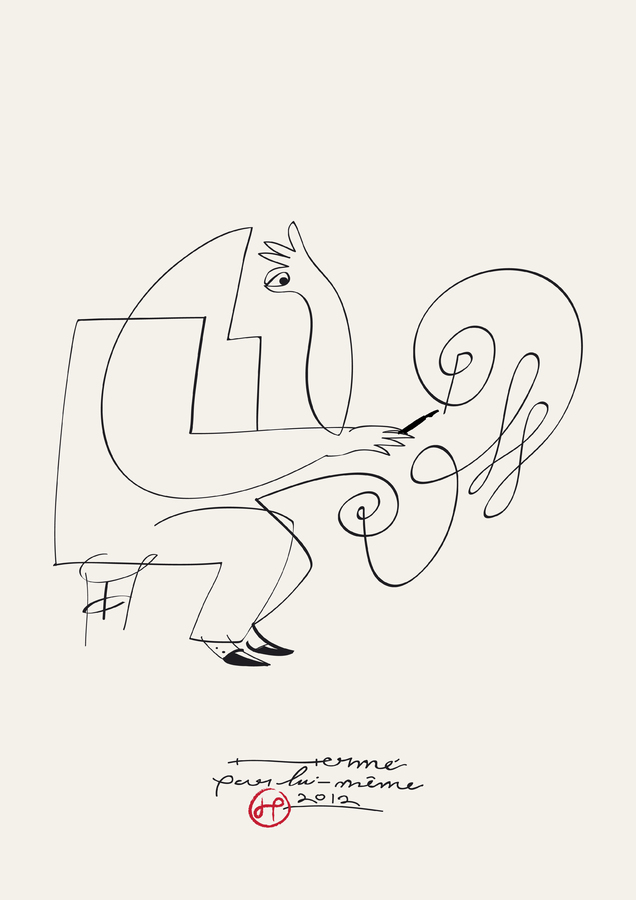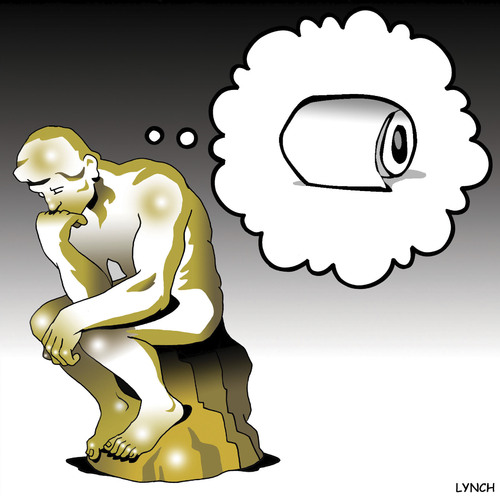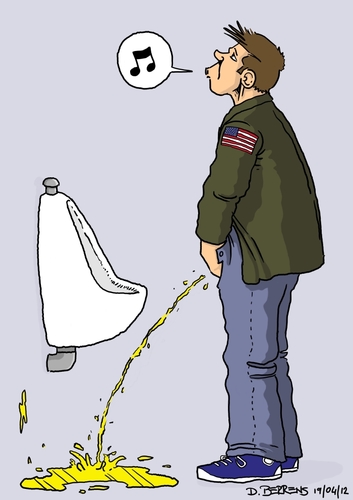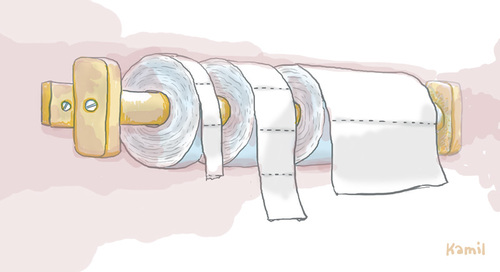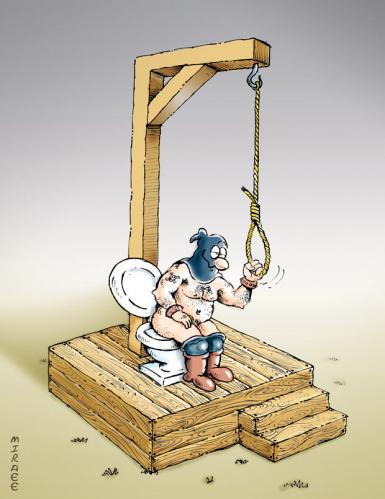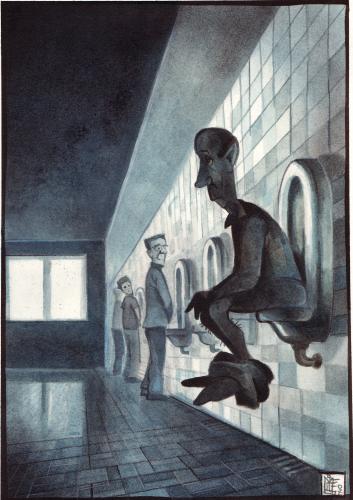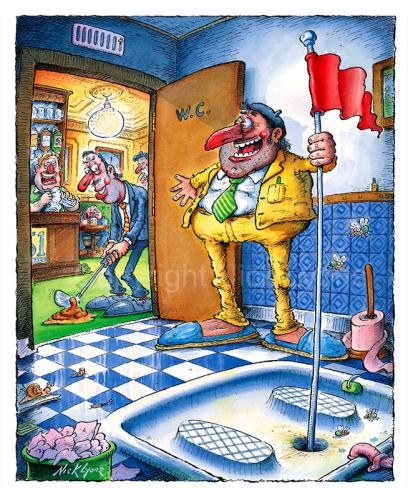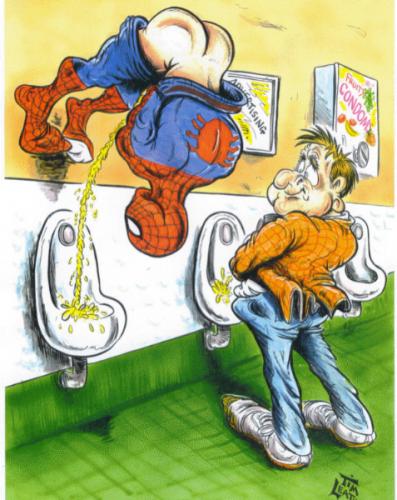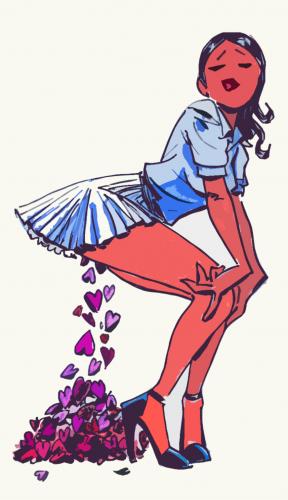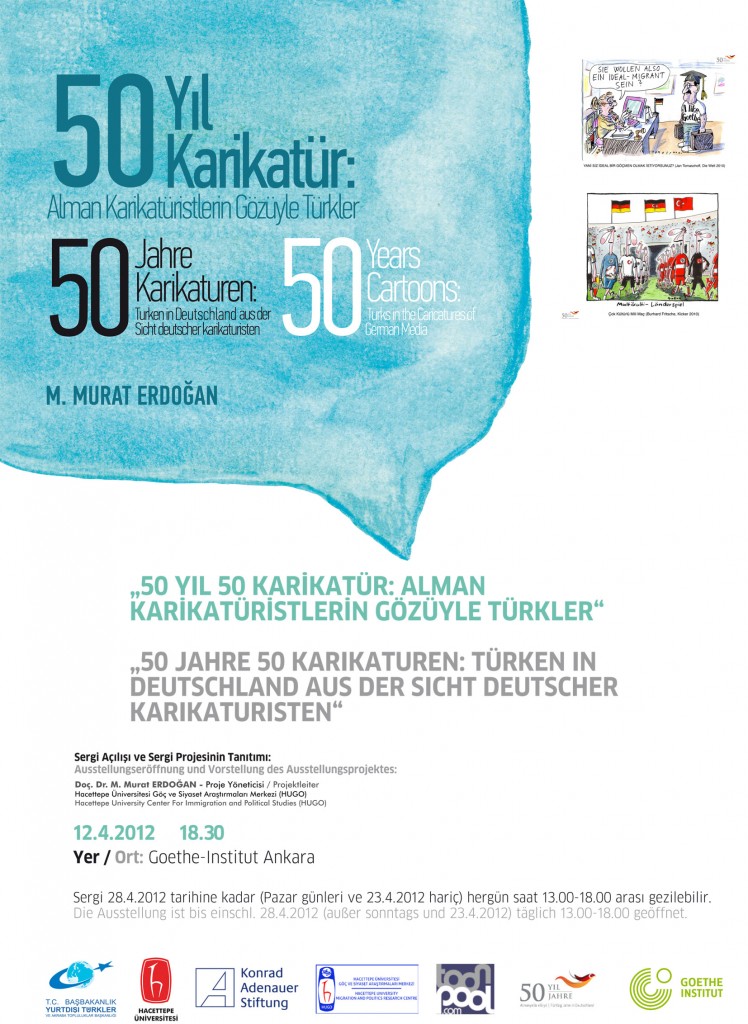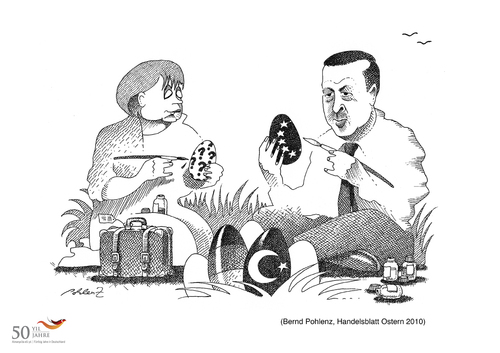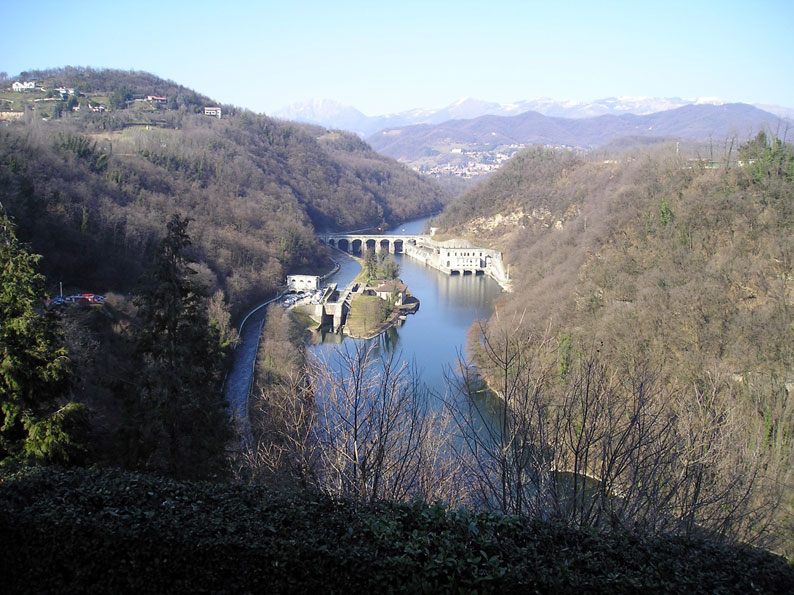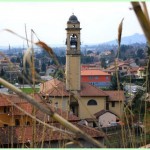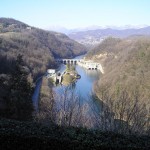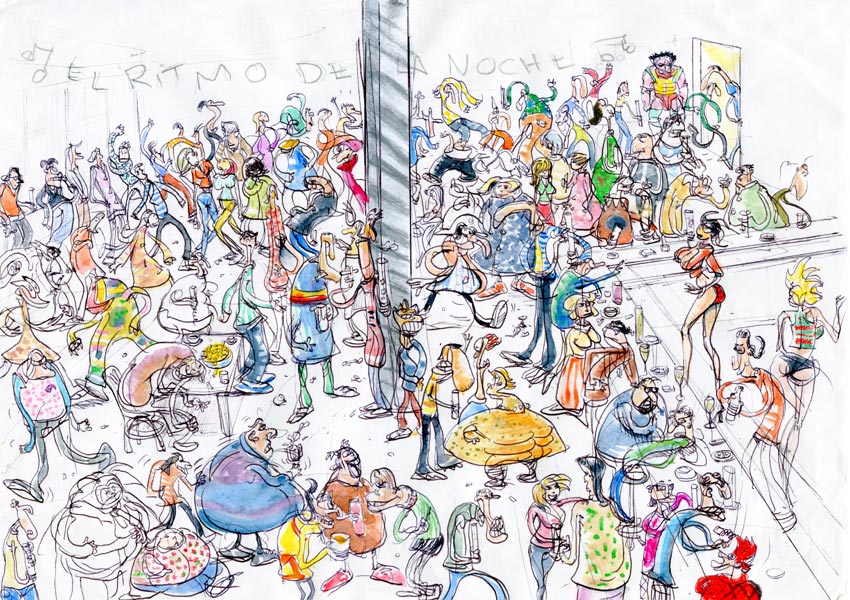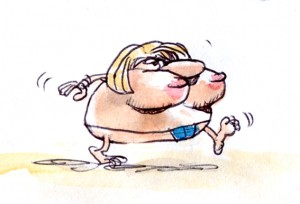Interview with Greek Professor of Modern and Contemporary History Aristotle Kallis (41), living in the United Kingdom and teaching at the Lancaster University
toonpool.com: “Zorba the Greek“, written by Nikos Kazantzakis, is a very famous Greek novel and a treasure of world literature, of course also world-renowned as the film of the same name (1964) starring Anthony Quinn. In that story Zorba has to repair a collapsed mine in the Greek countryside. In order to do that, he goes downtown to purchase building material. But he goes to the dogs with a fast woman, with drinking, dancing and sleeping, and he blows all the money – even though he’s responsible for the country people who subsist on wages from working in the mine. Though he’s penniless, he doesn’t surrender: he constructs a ropeway to transport logs from a mountain above the mine, in order to use them as supporting pillars. His undaunted optimism is so likeable – but during the first test run, the ropeway implodes in a big noisy crash – a complete disaster. Aristotle, do you think: Yep, that’s Greece! Is it an early omen for the current situation of the country? The Greeks are in love with life as the story says, but – what the heck! – they never become discouraged by failures, catastrophes or death, and if they fail, they simply get up and start over. Is this the typical Greek mentality, or have the Greeks lost their characteristic optimism since becoming embedded in the euro zone?
Aristotle: You mention Zorba by Kazantzakis – one my favourite authors’ least favourite book. Generations of Greeks grew up with this image of the one who knows better, who does things in the most unorthodox manner, who tries and fails and tries again and fails better (one of my favourite quotes by Beckett!). The story is accurate in so many respects, not all of which are positive: the maverick, yes, full of love for life, ready to try the most extraordinary thing and fail but then get up as you say and try again; the person who follows a bizarre inner voice, the thrust of emotions, the exaggeration of language, the harshness of the Greek summer landscape. But there is a side to the stereotypical Zorba that’s far from flattering: the person who does not recognise rules and is willing to find excuses to bend them to their benefit; who defies reason and celebrates flight from rationality; who is convinced of their intelligence against all odds, even if reality crushes them; who thinks first and foremostly about themselves; who embrace exaggeration and tragedy even if this means that they themselves will be crushed in the end. But Zorba (and, let’s face it, most people know the cinematic rather than the literary hero) is of course a stereotype, a caricature with deliberately blown-up charisma and flaws. He is a penniless bon-viveur, a man of extreme passion and clouded judgement, a blinded individualist, a charming crook. He is the epitome of human contradiction.
 The Greeks of 2012 are far less enamoured with life, even if they have not entirely lost their knack for enjoyment. Greeks today are confronted with a very tangible and debilitating reality – of lost jobs and reduced wages, of closed shops and wounded pride, of real insecurity and a sense of profound decadence. I travel to Greece every two or three months- and I saw a very real difference in the last year or so. People feel trapped, cornered, trashed, fooled – it does not matter if they really are any of these things; they believe they are, they think they are, and this is what matters to them. This is the kind of psychological state that allows false prophets to flourish and makes people willing to worship them temporarily.
The Greeks of 2012 are far less enamoured with life, even if they have not entirely lost their knack for enjoyment. Greeks today are confronted with a very tangible and debilitating reality – of lost jobs and reduced wages, of closed shops and wounded pride, of real insecurity and a sense of profound decadence. I travel to Greece every two or three months- and I saw a very real difference in the last year or so. People feel trapped, cornered, trashed, fooled – it does not matter if they really are any of these things; they believe they are, they think they are, and this is what matters to them. This is the kind of psychological state that allows false prophets to flourish and makes people willing to worship them temporarily.
Greeks also love pompous, pulsating rhetoric. They have an inflated collective ego – from history primarily but also from a sense of perseverance, against all odds. They are the archetypical proud, morally unassailable victims of a tragedy. They thrive on exaggerated rhetoric, on declarations of national bravado, on a kind of almost childish obstinacy when confronted with their own failings. An eternal teenager mentality if you wish, unwilling to heed the boring advice of their elders, convinced they know better, almost relieved from accountability that applies to everyone else. In this respect, Zorba is an eternal teenager too. His failings are romantic and likeable – but failings they are. Greeks today engage in finger pointing, in scapegoating, in unfiltered anger, indignation, and an extreme sense of reckoning that never includes their own responsibility.
Have they lost their sense of rationality and sanity? I don’t think so. It is just that in times of real crisis and tribulation human behaviour tends to become magnified. The virtues and the flaws, individual and above all collective. The veneer of ‘Europeanisation’ that at least three generations of Greeks tried to live up to has come undone, exposing deep insecurities about who Greeks are and who they wish to be. The sense of achievement that my generation experienced from EU membership and then joining the euro means far less to people in their 20s now. I do not fully blame them. For me and my friends, the euro meant a moment of symbolic triumph; for them it has become associated with crisis, lack of prospects, a harsh everyday reality, a lack of inspiring vision.
Zorba’s love of life and enthralling life philosophy contrast sharply with his flaws and failures. His beautiful language and thoughts are almost tragic when viewed against the backdrop of his maverick actions and misfortunes. For sure he is not afraid of failure or death; but this exposes a sense of unaccountability and moral superiority that are misplaced and misguiding. He is a tragic antihero, trapped in a hostile reality but unable to change it and unwilling to change in order to change it. He lives in his own rhetoric and relives drama in every waking moment. In the end, he fails and falls, with a lightness that is both endearing and devastating.
toonpool.com: Ancient Greece is regarded as the cradle of European democracy. The ancient Greeks were pioneers in politics, philosophy, arts, natural sciences, technology, and many other disciplines, and their achievements continue to influence peoples and nations all over the world. Does this fact still play a role today?
Aristotle: In the complex, volatile, vulnerable psyche of the modern Greek, it does, very much so; and it has become the ultimate psychological refuge when all other rational or semi-rational arguments have run out. Greeks believe that the world owes them – and this is a very interesting kind of analogy to use by a debt-ridden nation! There is a historical installment that others are constantly repaying to Greece; and there is a parallel with the past (of heroism, of obstinate refusal to accept reality, of fighting – and often losing – but with heart-breaking pride … think 300!) that the modern Greek will use to dismiss any attempt to remind them that the country is heading for a spectacular, devastating crash. My personal favourite is the ownership of the trademark ‘Europe’ – after all it was the Greek forefathers who imagined the story with the woman/cow and the besotted promiscuous father of the gods that gave us a foundation myth for a continent. Can there be Europe without Greece? Of course not, say many (in fact, probably a sizeable majority) of my compatriots, because it was the Greeks who over the centuries gave meaning to the very sense of European identity as a humanistic, democratic, refined civilisation.
Here is a bit of an alternative example – in the Eurovision song contest of 2012 the winning song was titled ‘Euphoria’. Now, this is a Greek word. When I was talking to some of my friends, I was shocked to find out that most of them thought that we (the Greeks) have a mission to inform the rest of the world (and the Swedes in particular, who won the contest) that they owe this word to us! Seriously. What does this (and other examples along the lines of a constant, impossible to repay debt of the world to the Greeks) illustrate? You have a nation that never really seriously bothered to redefine itself as a modern political and culture entity. Trapped between the proverbial east and west, wanting to belong to both and neither at the same time, Greeks lived in the past, basked in the glory of a long bygone era, and created the illusion of an entitlement – to respect, reverence, special treatment etc etc. In the discussions surrounding the drafting of the ill-fated European constitution last decade, Greeks were given numerous opportunities to feed this kind of illusion. This, incidentally, is the same illusion and rhetoric that brought Greece in the EC back in the late-1970s, when countries such as Germany and The Netherlands and Britain had serious reservations about the rationale behind the country’s entry: it made no sense economically, it was deeply unsettling in political terms (in 1979, when Greece’s membership was agreed, the country’s democracy was only five-years old!) – and yet, lead by the French, the notion that it was ‘impossible’ to have ‘Europe’ without Greece won the day; the Germans were convinced, and the rest is history. This rhetoric may not matter to many Europeans today (and rightly so, for the kind of challenges we are facing are not metaphysical or historical but very tangibly political and economic) but it is supremely important to the psychology of the modern Greeks. Remember how the Greek president reacted to the (rather crass, it has to be said) criticism by Wolfgang Schaeuble – he invoked the imagery of a wounded, diminished, inert but fiercely proud sleeping giant against the power of Europe’s ‘nouveau riche’ (the entire ‘western’ Europe) and used it to attack the attacker with a kind of emotional blackmail. So it is not just street philosophers and everyday people who are deeply embedded in this structure; politicians have no problem using it, whether because they believe it themselves or as a mechanism for boosting the morale of Greek society.
toonpool.com: Medical progress means that citizens of most Western societies are getting older, an effect which is supported by healthier eating. Starting in the 1960’s, Greek (and Italian) eating habits have revolutionized the cookery of the Western world. In Germany for example, gastronomy is unthinkable without Feta cheese, Tzatziki, olives and olive oil, garlic, Dolmadika, Choriatiki and many other Greek dishes. Do you think Mediterranean peoples, who are now in huge economic difficulties, have made other societies ready for the struggle for survival and for success in business – playing the role as perfect Southern nutritional advisers?
Aristotle: Maybe! But let us avoid the temptation to add this item to the long list of things that others owe to Greece! Incidentally, most of the dishes that you quote above have an Ottoman or Arabic provenance; they were defined during centuries of fascinating plural life in the Ottoman empire, where a true sense of ‘Balkan’ or ‘Ottoman’ culture did emerge. The Greek cuisine is a particular take on this kind of food and culture lifestyle. Ottoman does not of course mean ‘Turkish’; the latter was also part of it. It is ironic that politically Greece expended the last six decades denying this past while culturally continued to embrace it as its own. It is also equally ironic that it is dolmadakia and choriatiki salata that are the most immediate experiences of ‘greek-ness’ for many Europeans – much more so than philosophy, theatre, classical architecture etc!
toonpool.com: Germany has incited two world wars, and committed atrocities in Greece and other countries. After the crash it received generous support from the USA for a rapid recovery and a new prosperity. Ok, the USA had an agenda, but don’t you think it is a bizarre paradox that the Germans – represented by Angela Merkel, Wolfgang Schäube and some other German politicians, commercial experts and media – now are setting conditions and dictating to other countries in trouble? Are Greek fears of an upcoming “Fourth Reich” reasonable?
Aristotle: The imagery of a Fourth Reich is very strong in Greece – and it is part of the same Greek contemporary populism (of both left and right) that has meshed with the beliefs in an eternal debt by everyone to Greece for all the great things that ancient Greeks ‘gave’ to the world. Greek journalists have fed this monster and it is now almost uncontrollable. There is a new political party (Independent Greeks) that uses these kinds of metaphors all the time in its official discourse. Think also of another powerful discourse in Greece – reparations for the atrocities of the Nazis in the 1941-44 period. It is hard to shake off this stereotypical image, I am afraid. I have almost maintained that Germany has now found itself in a paradoxical position – and one that I believe never really wanted: it *has* to behave like the gigantic power that she really is; postwar Germany expended considerable efforts to disguise this newfound power; it behaved like the benevolent giant, shy and introverted, hesitant and overcautious, who always tried to pretend that it is far less powerful and important to the European process than it objectively was. Kohl excelled in this, when he was going around Europe trying to allay fears of a German resurgence post-1989 – and he framed German politics to that effect up until very recently. Now, Germany has been forced to confront its own power and assumed responsibility vis-a-vis the European project. The Merkel government gave voice to a mentality and attitude (shared silently by many Germans, including new generations) that Germany does not need to feel guilt for its contemporary power. The taboo is broken – see the recent book by Sarrazin about Germany leaving the euro because it is fed up of picking up the tab for others. If I were to extend the same analogy that I used for Greeks earlier (that of an unruly teenager), then Germany acts like the reluctant prudent parent; reluctant because in the past s/he used this power in a rather authoritarian manner but post-1945 was forced to take the back seat and watch numerous European ‘teenagers’ go about their business in unorthodox, quirky ways. Germany now pays the price for its spectacular success and prudence – and it is this position, as the undisputed powerhouse of contemporary Europe, that forces Germany to be more assertive in the context of the current crisis. In this new role, Germany is very much doomed – it will be loaded with all sorts of stereotypes about Bismarck and Hitler, about 1914 and 1939. It is very common in Greece to see Schaeuble presented in cartoons as a tank – and I know that this kind of populist, essentially insulting discourse is replicating itself in other countries too. Merkel has started shattering the taboo of German power in contemporary, euro-defined Europe – if the country is a giant, if it is the key to the success or rescue of the eurozone and the only prospect of kickstarting the economic fusion that leads to growth, then it has to act as one, it has to stop pretending that it should not and cannot. This kind of attitude will not go down well but there are few other alternatives.
The ‘Fourth Reich’ analogy is of course a hideous stereotype, steeped in prejudices and cliches about the past. It is also an idiotic argument that reduces a complex contemporary political and economic reality to a kind of mechanistic pattern of ‘history repeating’ – which of course it never does. But there is an element of universal truth in all this discourse: power translates itself in influence, responsibility, and hegemony, and disproportionate power does so disproportionately. Think of the USA in the post-1989 world; it is impossible to disguise this power and it is impossible to resist the temptation to wield it. In many ways, Germany’s attitude in the past two decades was the exception to this universal rule: there is probably no other example of such a mismatch between (real) power and refusal to wield it (in fear that others may invoke the imagery of WW2). What is happening now is a less palatable but more accurate correspondence between actual power and political behaviour. It was inevitable that Germany would be asked (or tempted) to assert this authority in the EU; it would have been better had this been done at a time of relative calm and growth but it had to happen in the midst of a debilitating economic crisis and social upheaval.
toonpool.com: Aristotle Onassis married the widow of a man who once said: Ask not what your country can do for you – ask what you can do for your country. Could that idea become an inspiration for Greece? And have rich men like Onassis done enough for their country?
Aristotle: Modern Greeks have grown up with a schizophrenic attitude to the Greek state and their country. On the one hand, they are in love with its stereotypical image of a slightly faded superpower of the past, a cultural giant that is falling apart but still maintains a large part of its veneer and commands the loyalties of others. On the other hand, they are deeply distrustful vis-a-vis the state, which they consider corrupt, inefficient, unsuitable etc. It is very difficult to convince Greeks today (as it was in the past) to accept a kind of collective, civic responsibility towards the state. Think of the attitude of Greeks to taxes: the way in which many Greeks evade taxation is a kind of bravado, an act of insubordination against an allegedly corrupt Greek state that they loathe. Think of their attitude to everyday corruption: laws are there to be disregarded because at the end of the day Greeks are fiercely individualistic, in a way that makes the notion of social responsibility a very vague concept to them. Generations of Greeks grew up with a sense of individual entitlement that did not include any sense of civic duty to the state and their country – the same ‘country’ that they putatively love and use emotively in their everyday language. This is a very comfortable, if bizarre and schizophrenic rationalisation: if the state is corrupt and inefficient, then people can individually benefit from a low-level corruption (anything from asking your friends in the police to cancel your fines for breaking the speed limit to bribing the urban planning office in order to bend regulations about your newly built house, etc) while at the same time castigate that same state for corruption and inefficiency to the point that their conveniently refuse to accept responsibility for it. When JFK was appealing to a well-embedded sense of emotional and constitutional patriotism among the Americans (a notion that remains very powerful even today), a Greek politician asking the same (as some have done…) will invoke the derision of his/her audience: who is he, the corrupt and discredited politician who is asking us for sacrifices? It is as if ‘the state’ is a kind of hostile estate of the politicians, the bankers, the proverbial rich, the global capitalists etc. etc. that has nothing to do with everyday Greek people. There is ‘a country’ out there that everyone vows that they love and respect; and ‘a state’ that is some kind of dictatorship ‘of others’ ruling this ‘country’, a dictatorship that deserves only derision and definitely no element of commitment from the Greek people. Unfortunately, this is a collective stance that has become even more powerful in the post-2008 period; the movement of the ‘indignant’ in Greece allowed many to scapegoat ‘the state’ as the only responsible for economic and social collapse.
Have rich people done enough? They never do – not only in Greece but in other countries too. Greece has a disproportionate share of very rich people – from shipowners who have taken their businesses abroad (not now; this has happened since the 1970s/1980s) to others with well-above-average income who have expended considerable energies in avoiding taxation and contributing as little as possible to the social welfare of the state. Some super-rich Greeks (Onassis is one; other shipowners and aristocrats too) have indeed contributed significant amounts of money to the Greek state – usually posthumously, it has to be added. I think that we should not just expect those very few people to solve the problem; it would have been nice but it will not happen – and probably cannot happen anyway. The problem remains, however – can contemporary Greece at last manage to devise a fair, transparent system of taxation for all its citizens, close loopholes, fight inefficiency and corruption, and thus allow the Greek state to claim that it is distributing the weight of contribution equitably across Greek society? I believe that a new kind of collective civic responsibility is what is sorely missed in Greece – and the economic crisis has strengthened the tendency towards a fiercely atomised and individualist society.
toonpool.com: Which Greece will the world see in five years?
Aristotle: Any prediction would be an exercise in science fiction. Could anyone have imagined the situation today five years ago (2007)? Absolutely not. I think that in five years time Greece will be a better place than it is today – not necessarily economically stronger or more prosperous (although I hope this is the case…) but more balanced, more aware of its position and shortcomings and fundamental flaws; more aware of its new position (even if it is a new, diminished position); more at ease with its new status (even if it is a status of a pariah or a second-tier European country). It is quite likely that the Greece of 2017 is a country outside a common European currency – or at least sharing the same currency with Germany. I fear that the coming year is the absolutely crucial test for Greece and Europe as a whole. The medium-term trajectory of the country will be largely decided in the coming twelve months or so.
I will evade a direct answer by sketching two scenarios. The good scenario is a Greece that has (or is about to do) hit rock-bottom before starting its difficult oath to some kind of recovery. It will be a country that discovers a new sense of position in Europe and is willing, after the trials of the past four years, to make the requisite sacrifices to be there, to restore its prestige and respect, to do things right in order to stop giving reasons to others to agonise about it (and give them reasons to intervene in the running of its everyday business). It will be a country with a new political class that will emerge from the ashes of the current wreck; with a new sense of patriotism derived from the same dreams of ‘Europeanisation’ and ‘modernisation’ that fuelled it in the 1970s and 1990s. It will be a Greece that is democratic and open to challenges, cooperative and at ease with its more diminished role, European but also proud of its complex history, welcoming to difference and open to hybrid identities of the future. It will be a Greece that, to use one of my favourite phrases by the former prime minister Konstantinos Simitis, will stop feeding itself with illusions of past greatness and look confidently to the future. This is a Greece that I could feel part of.
Then there is another Greece. It is the Greece of unfiltered populism – against immigrants, ‘Europeans’, ‘capitalists’ etc – and evasion of responsibility. It is the Greece that sleepwalks towards the abyss with tragic but infuriating abandon. It is the Greece of nationalism and racism, of indignation as an escape from reality and individual or collective responsibility. This Greece has no future to speak of. I cannot even begin to think what this country will look like in 2017: out of the euro, disoriented, with a society in a state of civil war, with a disorienting cultural pessimism, the kind of country that makes news for all the wrong reasons and the closest that an erstwhile ‘European country’ can come to a ‘failed state’. It is also a Greece of huge social problems – of poverty and degradation, of rapidly falling living standards, of criminality and racist attacks against immigrants, of populist parties commanding the support of many Greeks. It is a country without a future. This Greece means very little (if anything at all) to me – and I hope I will never have to confront it more than I do at the moment, when some of these forces are very much at play. Greece needs all the help she can get right now. Not just in economic terms but also in terms of shielding it from the latter kind of future.
Photos ©Aristotle Kallis
]]>For this new issue of “Letter from” column, we asked toonpool artist Kim Maxine Frost about her life and begged for some photographs of her working place and the place she lives in – Seattle, also known as “the The Emerald City”. Kim (Frostyhut) joined toonpool on July, 2009 and she wishes to double her toonpool gallery by the end of the year. Kim works as a radio announcer at Classical KING FM 98.1 (have you seen her classical music inspired cartoons?).We are also proud that Kim writes for us, so we invite you to read her great review-interviews on toonpool’s blog!
01. Which movie/tv character you see yourself as
and why?
I am totally Lynn Redgrave in Georgy Girl. She’s awkward and kooky, but it all works out. And she gets to meet James Mason! She dislikes him in the film, but he’s the best thing in it.
02. What are your New Year’s resolutions?
To get 200 drawings posted to toonpool.com. And now (gulp), I guess I really have to!
03. What bores you the most?
In the past, the most boring thing was that my work life and my creative life were split up. That’s changing though. My job just commissioned some drawings, which is nice. For the first time it’s all starting to blend together.
04. Do you like your place or would you like to live somewhere else?
Yes, I’ve never traveled. I love Seattle, but I fantasize about being somewhere warmer. Or just different. The radio station where I work airs a piece called Nights in the Gardens of Spain by Manuel de Falla. Every time I hear it, I want to go there.
05. What are you able to do that Superman can’t do?
Draw Superman? That reminds me – a couple of years ago I heard German pianist Bernd Glemser when he toured the States. He inspired me to create a character called Bernd von Mimzer, a concert pianist with superpowers. He had nipples that could shoot deadly flames. I drew about sixty pages of the comic, and then I got a full time job. I need to carve out the time to get back to Bernd. I miss him!
06. If you were sleep walking one night, where would you probably wake up the next day?
Well I’m obsessed with accessories, so my unconscious mind would probably take me to some shop filled with shoes and handbags. I’d love to wake up inside a Hermès store!
07. What would you wear to be kicked out from a black tie cocktail party
In Seattle, it’s hard to shock because anything goes. I’ve seen kilts at the symphony, jorts (jean shorts) at the ballet. I’d probably try incongruity in the same outfit – a bikini with combat boots, maybe!
08. Tell me the biggest prank you did on a friend.
I can’t think of a prank I pulled on someone else, but I remember a trick someone played on me. At an office Christmas party that was held at a nice hotel, one of my co-workers grabbed some silverware from a table setting and stuck it in my purse. I walked around all night with this silverware sticking out of my bag, and nobody told me! That’s the part I still can’t believe!
09. How to ruin your vacation?
Hot tubs have never worked out for me on vacations. Either there’s no heat, or the jets aren’t working, or both – and then you find yourself sitting in a big tub of tepid bacteria. The bacteria should at least be, you know, moving around.
10. If I gave you a giraffe, where would you hide it?
That reminds me of a line from one of Donald Barthelme’s surreal short stories: “And the giraffe’s on fire in the kitchen, but you don’t care!” Good question. I’d try to recreate the giraffe’s natural habitat, and paint the entire area to look like a jungle. Maybe do one part of it in a giraffe pattern, so the giraffe could just blend in with the background when it wanted to.
11. What do you do when you see the glass half empty!
When the glass is half empty and I start to feel down, I just buy stuff. I love pens. Right now my favorite is the Dr. Grip gel pen by Pilot. I don’t draw with it, I just make tons of lists (that I instantly lose). But I love those pens. I have them in a bunch of colors – pink, purple, emerald green. I go online and buy refills for my pens, and I feel much better.






Credits to Nicoleta Ionescu for
talking with Kim Maxine Frost
Translation:
-It wasn´t me, Dave! It was Frank!
-Frank is DEAD, Hal! Thats the point.
-Err..It was BOWMAN then!
- I am Bowman!!
-Are you sure?
-HAL!!!
Yes, Dave?
Little Jack….’
Feel free to join, browse collections or create one yourself: http://www.toonpool.com/collection.php
]]>By Kim Frost
The universe of toonpool artist Hermé is a sun-splashed playland of the gods floating high above the sublunary world we know. These curvaceous aristocrats, with their idealized faces and supple bodies, are like classical statues that have been awakened. Transparent and light as air, they frolic in a place where it’s okay to go naked and drink as much wine as you want. Gods just wanna have fun!
Hermé is like a champion golfer who wins every game with the fewest possible strokes. His bold characters arise from a sinuous line that looks as if it had been drawn in one sweeping gesture. The rich colors – gold, red, white, shades of blue – evoke regality and theatricality, humor and splendor, ecstasy and ornament.
A robust figure who looks like Icarus is the subject of Pacwine. In the myth, Icarus was incinerated for trying to make a trip to the sun with a pair of DIY wings. Here, though, the strapping god looks great, and his gigantic wings aren’t even singed. Did he survive the solar trip, or change his itinerary? With the grapes he holds, he could also be Dionysus, the god of wine and madness. Or is he really Hermé himself – Hermes, the winged messenger? Hermes is one of the busiest gods in the pantheon, in charge of agriculture, hospitality, friendship and sex, games and good luck. I love the white calligraphic lines that delineate his dark body, the curlicues of his joints, and the rosebud whirl inside the shoulder. And here’s a surprise: Pac-Man bouncing into the frame, eager to engulf a blood-red stream of wine that tilts out of the pagan altar (that’s a beautifully drawn phallic symbol of course). The layers of enclosure create security – the wings that shelter the god and his sun-warmed grapes, the dark floral scrolls framing the altar and Pac-Man, and the sun’s glow embracing the entire scene. In this conception Hermes is primarily a giver of life, the conduit of the earth’s abundance. He’s like the goat goddess who found the infant Zeus, the future king of the gods, and fed him with her milk.
In The Mirror, Hermé depicts a seated woman who appears to be gazing at herself in a hand-held mirror. The main surprise is that she has no head – the wavy line down her back suggests a swathe of long hair, but it turns into the inverted profile of a man. This vain woman seems to be losing herself, paradoxically, in her obsession with her own beauty. Is this a comment on the emptiness of narcissism? Or does vanity have utility after all? Can it create a negative space in a woman’s psyche and in her body, a point of vulnerability, permitting the man to enter? Another possibility is that the poor girl has literally lost her head over some guy. Everyone knows the feeling of being so much in love that everything looks upside down, including your own face in the mirror. This drawing also reminds me of Hermé’s charming self-portrait [see below] in which the artist uses the power of the drawn line to create his own body on the page. In this view we can take the seated figure in The Mirror to be the artist himself, who raises a mirror to life, and always reveals himself in his own creation.
Here is my interview with Hermé.
Where were you born, and where did you study?
I was born in Rio de Janeiro, Brazil, one of the most beautiful cities in the world. I was inspired by this beauty and light. I have never studied drawing, but I always liked to draw (I have drawings I made at three years of age) and I started drawing professionally at age sixteen.
Who are your main influences?
I have always been greatly influenced by ancient Greek art. I have a fascination with the drawings on Greek vases. I have also been influenced by Picasso, Steinberg, and Roberto Burle Marx, among many others, and by Art Nouveau.
What do you use in your work?
I draw with all kinds of stuff, but I’m currently using a Wacom tablet (Cintiq 21 UX), and the Illustrator programs for Mac. I have a large number of printers for all purposes.
When did you become fascinated with wine?
I’m not exactly “fascinated” with wines. There was a time when I produced many drawings on this subject. I am now illustrating the works of Brazilian author Jorge Amado, and depicting women who are present in the work of this author.
What do you do when you’re not drawing?
I like to be very close to my family – children, wife, my dog, and some cats we had in our lives for five months.
-end-
]]>
What I find astonishing is that pretty much all of the toilet cartoons show men only. There is just this one work featuring a female. How come? I am pretty sure women drop a deuce once in a while as well. ![]()
Toonpool artist Munguίa combines a painter’s command of color with the bold, curvaceous line work and playful humor of a master cartoonist. This is a beautiful, shimmery, decorative style with echoes of Picasso and Klimt, folk art, even ancient mosaics. It’s interesting in itself, but that’s just the beginning. There is always a parody, a joke, a surprising connection or a deeper meaning. His dreamlike scenarios carry you back to childhood, when two unlikely words strung together could call up an instant picture in your head. Or the expression on a dog’s face could put you in a dream. Munguίa encourages the fantasy – and unleashes a gorgeous world of zany, serendipitous delight.
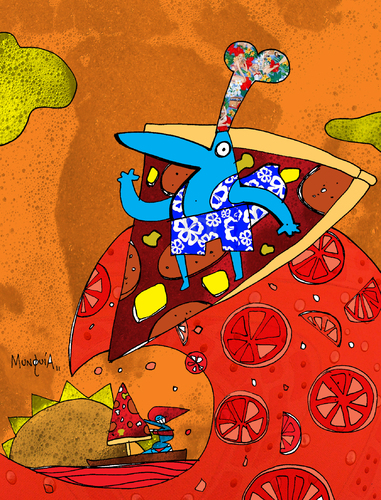
Hawaiian Pizza
A surprised-looking pizza chef catches a wave at sunset on a huge slice of ham-and-pineapple pizza, in Hawaiian Pizza 2. His teal-blue color makes him pop against the red-orange sea of tomato sauce. The waves are foamy with sliced tomatoes, and after a moment it becomes clear what those clouds are – Midas-touched dollops of mozzarella. Like the surfer, we’re carried along by the wave’s red curve and the edge of the pizza slice, to a surprise at lower left – the setting sun frames a tiny bikini-clad girl on a sailboat, with a slice of pizza for the sail. There’s a hum of movement and contrast – flat space gives way to sudden depth, intricate patterns break up smoother areas of color, all in support of the carefree figure at the center with the enviable lifestyle. I would love to be this guy!
What if valet parking were really Ballet Parking, with the lot attendants pirouetting en pointe! In a play on cama, the Spanish word for bed, two beds are entwined in ecstasy in Kamasutra. And I love the sheer outrageousness of Barbies, with the bearded tranny Barbie dolls still encased in their boxes.
Munguίa’s masterwork parodies are always affectionate. A favorite of mine: Monalisa Giving the Finger! At first blush, the cartoonist seems to be putting the most famous painting of all time in its place. But the artist is actually in collusion with his timeless subject. He’d like to give her a break. The lady has been dying to do something rude for a few hundred years, and Munguίa finally gives her the chance!
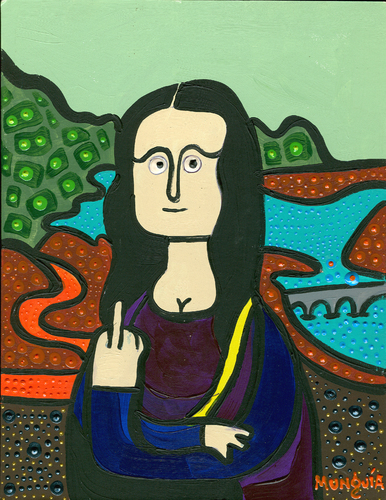
Monalisa giving the finger
My recent interview with Munguίa.
Where were you born, where did you study, and where do you live now?
I was born and raised in San Jose, Costa Rica. I’m currently living in Guadalupe, a canton of San José, the capital.
Which artists inspire you the most?
As a child I was a fan of Garbage Pail Kids and Topps sticker collections. The style of John Pound influenced me as much as Matt Groening and Quino. My country recognizes the influence of my colleagues Nano, Arcadio and Ferrom in my work.
You use a beautiful painterly technique in your cartoons – do you also put cartoons in your paintings?
I just do cartoons – the techniques are what I change. Sometimes I do acrylic paintings, ceramics, sculptures, animations and video games – all related in the unity of my own style into humoristic art.
How do you work?
When working digitally I start with an original drawing with ink on paper, then scan it and color it on the computer. I usually use Photoshop, but now I’m using a Bamboo Tablet and Animator to put color to my drawings on paper. In addition to publishing my drawings on toonpool, I produce the Calcamunguías, a series of stickers printed on vinyl. The collection started ten years ago, and so far there are 1,226 images and counting. Some are printed on tee shirts, and others are printed on ceramic tiles and then shown in galleries.
What do you do when you’re not doing art?
I’m a husband and father of two children. I live with Deborah, Fausto (two and a half) and Fidel (a year and eight months), along with twenty-two dogs recovered by my wife from the street. In our shelter we had five dogs with three legs, two one-eyed dogs, a scarface one, ex-fighters, and mental illness. All good behavior, quiet and clean, thanks to my wife who has an extra-special ability to change the sad and sick into the happy and healthy.
I do art all the time. I paint and program video games for my kids, I help my wife in her work with illustrations and videos, and I also help many animal welfare groups and associations. I love to cook, I move furniture around the house, and I do installations.
More of Munguίa´s work you find here.
]]>AUS DER SICHT DEUTSCHER KARIKATURISTEN“
„50 YIL 50 KARİKATÜR: ALMAN KARİKATÜRİSTLERİN
GÖZÜYLE TÜRKLER“
Ausstellungseröffnung und Vorstellung des Ausstellungsprojektes:
Sergi Açılışı ve Sergi Projesinin Tanıtımı:
Bernd Pohlenz, Karikatür Sanatçısı ve „Gesellschaft für Karikaturen toonpool.com“ Bașkanı
Cartoon-Künstler und Präsident der „Gesellschaft für Karikaturen toonpool.com“
12.4.2012 18.30
Yer / Ort: Goethe-Institut Ankara
Die Ausstellung ist bis einschl. 28.4.2012 (außer sonntags und 23.4.2012)
täglich 13.00-18.00 geöffnet
Sergi 28.4.2012 tarihine kadar (Pazar günleri ve 23.4.2012 hariç)
hergün saat 13.00-18.00 arası gezilebilir.
Die Ausstellung „50 Jahre – 50 Karikaturen: Türken in Deutschland aus der Sicht deutscher Karikaturisten“ reflektiert die verschiedenen Phasen türkischer Lebenswelten in Deutschland. Insbesondere die letzte Phase der türkisch-europäischen Beziehungen, die Ausländerfeindlichkeit, die sich insbesondere nach dem 11. September intensivierte, die Leitkultur sowie der Einbürgerungstest haben in den letzten Debatten über Migranten zu einem Anstieg der Karikaturen geführt. Aber abgesehen davon hat auch der Transfer von Denkweisen der türkischen Migranten in diese Eingang Anklang gefunden. Daher ist zu sagen, dass die türkischen Migranten in den deutschen Medien einen besonderen Stellenwert einnehmen und in keiner Weise mit anderen Migrantengruppen in Deutschland verglichen werden können. Dies zeigt sich auch in den Karikaturen der Ausstellung.
„50 Yıl – 50 Karikatür: Karikatüristlerin Gözüyle Türkler” sergisi, Almanya’da yaşayan Türklerin değişik dönemlerdeki yaşam biçimlerini anlatmaktadır. Özellikle son dönemdeki Türkiye-AB ilişkileri, 11 Eylül sonrası gelişmelere bağlı olarak yoğunlaşan yabancı düşmanlığı, öz kültür, vatandaşlık testi gibi ayımcılık politikaları, çifte vatandaşlık, göçmenler üzerinden yapılan siyasi tartışmalar bu karikatürlerde geniş yer buldu. Ancak en az onlar kadar Türk göçmenlerin yaşadıkları topluma yönelik zihniyet transferleri de bu karikatürlere yansıdı. Sergilenen bu karikatürlerde de görüldüğü gibi, Türklerin Alman medyasında başka hiç bir göçmen grupla karşılaştırılmayacak
See all participating cartoons here<<
01. Which movie/tv character you see yourself as and why?
There is a TV show, “Scrubs”, where the protagonist tends to imagine unreal situations to distract himself from reality. Sometimes I distract my attention from reality like that.
02. What was your New Year’s resolution?
I’m on a course for a new total different work..I hope to be promoted!
03. What bores you the most?
Listening to stupid politicians it’s what bores me the most. Berlusconi was the worst of all. But there are more… Monti and company aren’t different.
04. Do you like your place or would you like to live somewhere else?
I live in a small village in the countryside, a perfect place for children to grow “into the wild”, but I personally hope to move to a place just in front of the sea, somewhere, someday.
05. What are you able to do that Superman can’t do?
Superman can’t give people the intelligence to make this world the paradise that could be.
06. If you were sleep walking one night, where would you probably wake up the next day?
On a train…
07. What would you wear to be kicked out from a black tie cocktail party
No idea..perhaps a black sensual dress with tennis shoes
08. Tell me the biggest prank you did on a friend.
Usually the victim…is me! Maybe because I’m too ingenuous!
09. How to ruin your vacation?
Vacation…what does vacation mean?
10. If I gave you a giraffe, where would you hide it?
I would hide it among other giraffes.
11. What do you do when you see the glass half empty!
I go in front of the mirror and give a speech for the half full part!
More photos. Please click them to enlarge.
Credits to Nicoleta Ionescu for
talking with Cristina Bernazzani
toonpool.com artist Gerardo Llobet’s vision is so deeply held that he can’t draw a line without revealing it. His life-affirming spin on the world is encoded in the DNA of his cartoons. The humor and excitement, hubbub and catastrophe of social life his is subject, in his exquisitely realized bar scenes, street scenes, and beach scenes.
The flow of Gerardo’s breezy, fluid lines creates an almost audible buzz, particularly in his crowd scenarios. In Titus, gesture drawing reaches high art in this bar scene full of life, movement and character. A style like this one requires a dead-on technique. It looks effortless, but of course it isn’t. The ability to draw with this kind of freedom is the result of total self-assurance, technically and expressively. The organic curve is pre-eminent in Gerardo’s work. There are almost no straight lines, and where they exist, they show incredible variation – the same line can begin with a thick dark stroke, and end with a feathery, quivering edge.
Gerardo’s people are a true delight. The bodies and faces of his hilarious characters, their popping eyes and ecstatic grinning faces, their screwed-up foreheads and black-browed frowns, reveal every emotion. We do more than see these people – we know them on sight.
Their personalities bloom directly out of the gestural lines of their bodies, in an ideal fusion of form and character.
In Gerardo’s cartoon portrait Primadona 1, we meet a blonde woman in mid-stride, naked except for the strip of her teal-blue swimsuit bottoms. She’s a squat, confident figure in motion, composed of layers. The heavy-lidded eyes surmount a gigantic potato-shaped nose, and the nose juts out from between the huge breasts. These breasts seem to be the Primadona’s real eyes – two ferocious organs that size up the landscape with piercing pink pupils. She’s balanced on her short right leg, while the other foot stabs the air with ecstatic toes, and waves at us like a hand. Her real hand and arm are flung outward like a tasseled cord. Though her face is submerged, we know she’s a beauty. What does she want, a sunnier spot on the beach? A hot dog swathed in mustard? A new man? Whatever it is, this Primadona has an intensely appealing quality. The tenderness of this portrait is characteristic of Gerardo’s affectionate depictions of his characters, male and female.
Here’s my recent interview with Gerardo
What inspires you the most?
The full moon, a little…and seeing the work of great artists.
When did you first become obsessed with bars?
This is how I get beer! I worked in a bar with my parents in my youth.
Which artists did you admire when you were younger?
Moebius, R. Crumb, Edika, Franquin…and lots more!
How do you get your amazing loose and fluid line?
I developed this technique to make quick notes while taking orders at the bar.
I’m interested in how you’ve combined pen and ink with digital – do you draw first, and then color?
I work on parts of drawings with china ink and watercolor, and I also do ballpoint sketches.
I scan them, and then use the magnetic loop. With the magic wand I select areas in which I use gradients, brushes, filters, and the clone stamp to get the same tone as watercolors.
How often do you draw from life, with something in front of you?
At all times I observe the girls around me. The rest is all imagination.
Are women’s boobs bigger in Spain?
Everything is bigger in Spain!
What would you say your philosophy of life is, if you have one?
Pursue gurus!
]]>
More videos by Snägelsyou can find on his youtube channel.
If you are an artist on toonpool.com and do your own “making of” videos, feel free to send us the link to your video so that we can feature it on our blog as well. Just write to [email protected].



